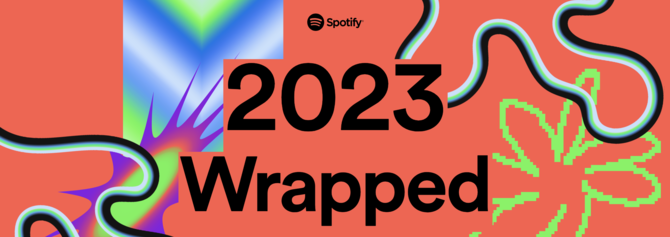DUBAI: Audio streaming service Spotify this week released its annual roundup of the most popular artists, songs, albums and podcasts streamed in each country over the past year.
“From gaming playlists reigning supreme to the fascinating connection between global music trends and local podcasts, it’s evident that Saudi audiences are not only embracing the world but also cherishing their roots, especially in the realms of Khaleeji music and the ever-expanding world of podcasts,” said Akshat Harbola, managing director for the Middle East, North Africa and South Asia.
This year’s Wrapped report marks five years since Spotify launched in the MENA region. In that time, streams of female artists in the Kingdom have grown by 9,150 percent, with Taylor Swift the most popular of all.
Assala Nasri and Sherine took the fifth and 10th spots on the most-streamed Arab artists in the Kingdom, while Balqees’s “Da Elly 7sal” ranked third and “Alfin Bab” by Oumaima Taleb eighth on the most-streamed Arabic songs list.
International artists dominated the most-streamed artists in Saudi Arabia, with Taylor Swift, The Weeknd and Lana Del Rey filling the top three places.
Saudis’ affinity for international music was also reflected in the lists of the most-streamed songs and albums.
Adele’s “Set Fire to the Rain,” Jung Kook’s “Seven” and Interworld’s “Metamorphosis” were the top three most-streamed songs in the Kingdom, while The Weeknd’s “Starboy,” Metro Boomin’s “Heroes and Villains” and Adele’s “21” were the most-streamed albums.
Most-streamed Arab artists in Saudi Arabia
- Abdul Majeed Abdullah
- Rashed Al-Majed
- Khaled Abdul Rahman
- Ayed
- Assala Nasri
- Majid Almohandis
- Mohammed Abdu
- Ahmed Saad
- Abadi Al Johar
- Sherine
Most-streamed artists in Saudi Arabia
- Taylor Swift
- The Weeknd
- Lana Del Rey
- Drake
- BTS
- Travis Scott
- Cigarettes After Sex
- Metro Boomin
- Abdul Majeed Abdullah
- Jung Kook
Most-streamed songs in Saudi Arabia
- “Set Fire to the Rain” by Adele
- “Seven” (feat. Latto) (Explicit Ver.) by Jung Kook
- “Metamorphosis” by Interworld
- “Kill Bill” by SZA
- “Alo Aleky” by Mohammed Saeed
- “Snowfall” by Oneheart
- “Another Love” by Tom Odell
- “I Wanna Be Yours” by Arctic Monkeys
- “Cupid” Twin Ver. by Fifty Fifty
- “Like Crazy” by Jimin
Most-streamed albums in Saudi Arabia
- “Starboy” by The Weeknd
- “Heroes & Villains” by Metro Boomin
- “21” by Adele
- “Midnights” by Taylor Swift
- “SOS” by SZA
- “Born To Die — The Paradise Edition” by Lana Del Rey
- “Cigarettes After Sex” by Cigarettes After Sex
- “After Hours” by The Weeknd
- “Proof” by BTS
- “1989” by Taylor Swift
Spotify users can access their personalized Wrapped experience on its mobile app and website.




























